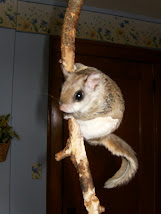Kelsey Vandegrift
MS. Peifer
Hour 5 10IB
9 December 2008
Specific values shown in the last section of Beowulf, "The Battle with the Fire-Breathing Dragon", include loyalty and leadership. Beowulf is loyal to his people and their leader until his end. "I risked my life/ often when I was young. Now I am old,/ but as king of the people I shall pursue this fight/ for the glory of winning" (Heaney 2511-2514). Beowulf has risked his life over and over again for his people because as king it is his job to protect them for his whole life. Beowulf is not the only loyal person worth mentioning. The men who he leads are more loyal to him than any other person. "Your deeds are famous,/ so stay resolute, my lord, defend your life now/ with the whole of you strength. I shall stand by you" (2666-2668). As long as Beowulf has men loyal to him he will continue to be the ultimate hero until the moment he dies.
This section of Beowulf is different than others because the reader is exposed to something close to a weakness of Beowulf's. In his battle with Grendel, Beowulf fights the gigantic monster with his bare hands and is still able to kill him. "I would rather not/ use a weapon if I knew another way/ to grapple with the dragon... But I shall be meeting molten venom/ in the fire he breathes so I go forth/ in mail-shirt and shield" (2518-2524). Beowulf has decided to arm himself with in this battle. Previously Beowulf did use a sword in his attempt to kill Grendel's but mother but this situation is different. A shield and mail-shirt are meant to protect the warrior and a sword is meant to hurt the opposition. This shows how Beowulf is more concerned that his enemy could harm him more than he ever has before. This shows Beowulf is worried about facing the dragon and is preparing for a different kind of fight.
Beowulf's death is a very honorable end for the magnificent hero. His final obstacle and the last danger to his people has been destroyed. One aspect of his death that makes it especially honorable is the fact that he died while saving his people. "... I give thanks. that I behold this treasure here in front of me,/ That I have been allowed to leave my people/ so well endowed on the day I die" (2795-2798). Throughout the entire ordeal with the dragon Beowulf's thoughts are always with his people and making sure they will be safe when he is gone. Another part of his death that makes it honorable is Beowulf excepts his death has come. "...he still spoke/ for he well knew his days in the world/ had been lived out to the end: his allotted time/ was drawing to a close, death was very near" (2725-2728). Beowulf has lived his life to his utmost potential and has been a great king. Now that he is dying he is ready for it because he has done everything he was meant to do.
Tuesday, December 9, 2008
Monday, December 8, 2008
Beowulf LRJ #2
Kelsey Vandegrift
Ms. Peifer
Hour 5 10 IB
8 December 2008
A very important value in the poem Beowulf is the pride and courage men have as warriors. The warriors themselves had enormous courage in Beowulf their leader who was the best among them. "Through the strength of one they all prevailed;/ they would crush their enemy and come through in triumph and gladness" (Heaney 698-700). The warriors followed Beowulf faithfully and with courage. "None of them expected he would ever see/ his homeland again or get back/ to his native place and the people who reared him" (691-693). Beowulf lead by example and there was no one else in the world like him, therefore other men became very brave as well.
An unrealistic part of Beowulf's character is his awesome strength. "...the hero displayed/ high up near the roof: the whole of Grendel's/ shoulder and arm, his awesome grasp" (8833-835). It is impossible for one man to rip an arm off a monster big enough to eat thirty men at once. When the poem would be read out loud the image of Beowulf's strength and actions would have been very powerful and would've had a big effect on the audience. However unrealistic his strength is, it is essential to Beowulf's character. Without his strength, Beowulf would not be the one-of-a-kind man he is. This would diminish his whole persona as a hero.
A very important and affective quote in the story is when Beowulf returns to Hrothgar with Grendel's head. "In he came then, the thane's commander,/ the arch-warrior, to address Hrothgar: his courage was proven, his glory secure" (1644-1646). The image of Beowulf entering the great mead-hall with the head of Grendel in his grasp is such a powerful image. The great monster is finally defeated and Beowulf has proven himself. The passage goes on to say, "... a horror for both queen and company to behold./ They stared in awe. It was an astonishing sight" (1649-1650). This part of the passage shows how magical and unbelievable Beowulf was to his own people. The sight of their leader coming back to them with all danger gone is a remarkable picture to imagine.
Ms. Peifer
Hour 5 10 IB
8 December 2008
A very important value in the poem Beowulf is the pride and courage men have as warriors. The warriors themselves had enormous courage in Beowulf their leader who was the best among them. "Through the strength of one they all prevailed;/ they would crush their enemy and come through in triumph and gladness" (Heaney 698-700). The warriors followed Beowulf faithfully and with courage. "None of them expected he would ever see/ his homeland again or get back/ to his native place and the people who reared him" (691-693). Beowulf lead by example and there was no one else in the world like him, therefore other men became very brave as well.
An unrealistic part of Beowulf's character is his awesome strength. "...the hero displayed/ high up near the roof: the whole of Grendel's/ shoulder and arm, his awesome grasp" (8833-835). It is impossible for one man to rip an arm off a monster big enough to eat thirty men at once. When the poem would be read out loud the image of Beowulf's strength and actions would have been very powerful and would've had a big effect on the audience. However unrealistic his strength is, it is essential to Beowulf's character. Without his strength, Beowulf would not be the one-of-a-kind man he is. This would diminish his whole persona as a hero.
A very important and affective quote in the story is when Beowulf returns to Hrothgar with Grendel's head. "In he came then, the thane's commander,/ the arch-warrior, to address Hrothgar: his courage was proven, his glory secure" (1644-1646). The image of Beowulf entering the great mead-hall with the head of Grendel in his grasp is such a powerful image. The great monster is finally defeated and Beowulf has proven himself. The passage goes on to say, "... a horror for both queen and company to behold./ They stared in awe. It was an astonishing sight" (1649-1650). This part of the passage shows how magical and unbelievable Beowulf was to his own people. The sight of their leader coming back to them with all danger gone is a remarkable picture to imagine.
Friday, December 5, 2008
Beowulf LRJ #1
Kelsey Vandegrift
Ms. Peifer
Hour 5 10 IB
5 December 2008
In the Old English poem Beowulf, values such as community and pride are represented throughout. The importance of community and unity is shown through the creation of Heorot, the mead-hall. King Hrothgar believed strongly in having a place where everyone could be together and enjoy themselves. "...He handed down orders/ for men to work on a great mead-hall/ meant to be a wonder through the world ..." (Heaney 68-70). The hall was a joyous place where people came together to listen to stories, drink mead and forget about any worries. It was a happy place and everyone was invited and encouraged to attend.
Alliteration is very important to the poem. The repetition of the same sounds stress the point that is being made. Examples of alliteration are, "There was Shield Sheafson, scourge of many tribes" (4), "... he would dispense/ his god- given goods to young and old" (71-72) and,"...away with a will in their wood-wreathed ship./ Over the waves, with the wind behind her" (216-217. These sentences all flow nicely. Because Beowulf was meant to be an oral story or a song, alliteration makes the story sound better out loud. Repetition of similar sounds add emphasis to the story and create a strong tone when dramatically told aloud.
Kennings are used over and over again in the poem. By using kennings an object can be looked at in a new way. "The leader of the troop unlocked his word-hoard" (258). In this example a "word-hoard" is meant to be a mouth. This shines a new light on a mouth because it makes it sound as if a mouth is only meant for talking. Another example of a kenning is, "...the throne itself, the treasure-seat" (168). Hrothgar's throne is so important that calling it a throne does not do justice. Using the word "treasure" adds to the idea that it is special and one-of-a-kind. A final example of a kenning is, "...this corpse-maker mongering death" (276). Grendel is a terrible monster and who kills people every night. Calling him a "corpse-maker" is just another way to say how gruesome he is.
Ms. Peifer
Hour 5 10 IB
5 December 2008
In the Old English poem Beowulf, values such as community and pride are represented throughout. The importance of community and unity is shown through the creation of Heorot, the mead-hall. King Hrothgar believed strongly in having a place where everyone could be together and enjoy themselves. "...He handed down orders/ for men to work on a great mead-hall/ meant to be a wonder through the world ..." (Heaney 68-70). The hall was a joyous place where people came together to listen to stories, drink mead and forget about any worries. It was a happy place and everyone was invited and encouraged to attend.
Alliteration is very important to the poem. The repetition of the same sounds stress the point that is being made. Examples of alliteration are, "There was Shield Sheafson, scourge of many tribes" (4), "... he would dispense/ his god- given goods to young and old" (71-72) and,"...away with a will in their wood-wreathed ship./ Over the waves, with the wind behind her" (216-217. These sentences all flow nicely. Because Beowulf was meant to be an oral story or a song, alliteration makes the story sound better out loud. Repetition of similar sounds add emphasis to the story and create a strong tone when dramatically told aloud.
Kennings are used over and over again in the poem. By using kennings an object can be looked at in a new way. "The leader of the troop unlocked his word-hoard" (258). In this example a "word-hoard" is meant to be a mouth. This shines a new light on a mouth because it makes it sound as if a mouth is only meant for talking. Another example of a kenning is, "...the throne itself, the treasure-seat" (168). Hrothgar's throne is so important that calling it a throne does not do justice. Using the word "treasure" adds to the idea that it is special and one-of-a-kind. A final example of a kenning is, "...this corpse-maker mongering death" (276). Grendel is a terrible monster and who kills people every night. Calling him a "corpse-maker" is just another way to say how gruesome he is.
Subscribe to:
Posts (Atom)







